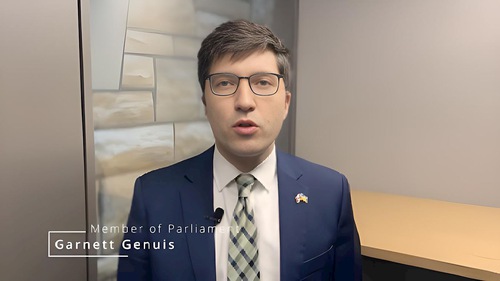Kananaskis, Canada: Virtual Round Table on Forced Organ Harvesting Held During G7
(Minghui.org) From June 15 to 17, 2025, during the G7 Summit in Kananaskis, Alberta (Canada), DAFOH (Doctors Against Forced Organ Harvesting) held a virtual round table to mark the first anniversary of the G7+7 international petition to end forced organ harvesting. The petition urges G7 leaders to denounce the Chinese regime and call for investigations. The G7+7 petition was initiated by two associations, DAFOH and ETAC (End Transplant Abuse in China).
On June 14 at 7:00 PM, the virtual event titled “Leadership Means Courage to Act — Call Upon China to End Forced Organ Harvesting from Falun Gong” brought together distinguished speakers. Among the attendees were Professor Emerita Maria Cheung; Mr. Garnett Genuis, Member of Parliament (MP); Mr. Dan Muys, MP; Mr. David Matas, international human rights lawyer; and Dr. Andreas Weber, MD, deputy director of DAFOH Europe; and Mr. William Huang, a victim of the Chinese Communist Party’s (CCP) persecution.
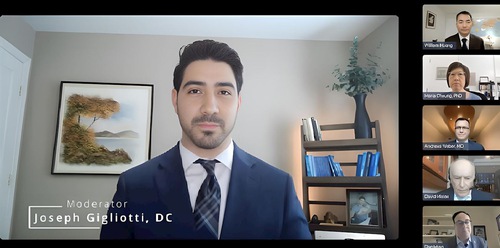 The expert panel at the virtual roundtable on Saturday, June 14, 2025.
The expert panel at the virtual roundtable on Saturday, June 14, 2025.
MP Calls for Legislation to Sanction the CCP’s Forced Organ Harvesting
Garnett Genuis MP was unable to attend the round table, but expressed his commitment and support through a video. He spoke about the adoption of a law in Canada that makes it a crime to travel abroad to receive a harvested organ without consent. He strongly encouraged lawmakers in other countries to adopt similar legislation.
He said, “Raising awareness, and passing prohibitions like we’ve done in Canada. We need to continue to speak out against these abuses and challenge the CCP officials who are involved, to stop this action, to end the persecution of various minorities inside China, and to end forced organ harvesting and trafficking.
“This is a grievous violation of fundamental human rights, obviously. It’s horrific that it has happened and continues to happen. So we need to end complicity by those who are in Western countries and do what we can to call this out, hold perpetrators of human rights abuses accountable, and stop these actions from happening.”
Dan Muys MP, like Garnett Genuis MP, has been a long-time supporter of Falun Gong. He highlighted the contrast between the practitioners, who follow the principles of Truthfulness, Compassion, and Forbearance, and the CCP’s forced organ harvesting. The CCP’s persecution is entirely contrary to these principles.
Dan Muys MP also encouraged practitioners to continue efforts and to, “raise public awareness of what is happening and encourage action.”
He concluded his speech by saying, “So it is important for you to know that you do have friends in the Parliament of Canada.”
David Matas: It Is Important to Raise the Issue to G7 Countries
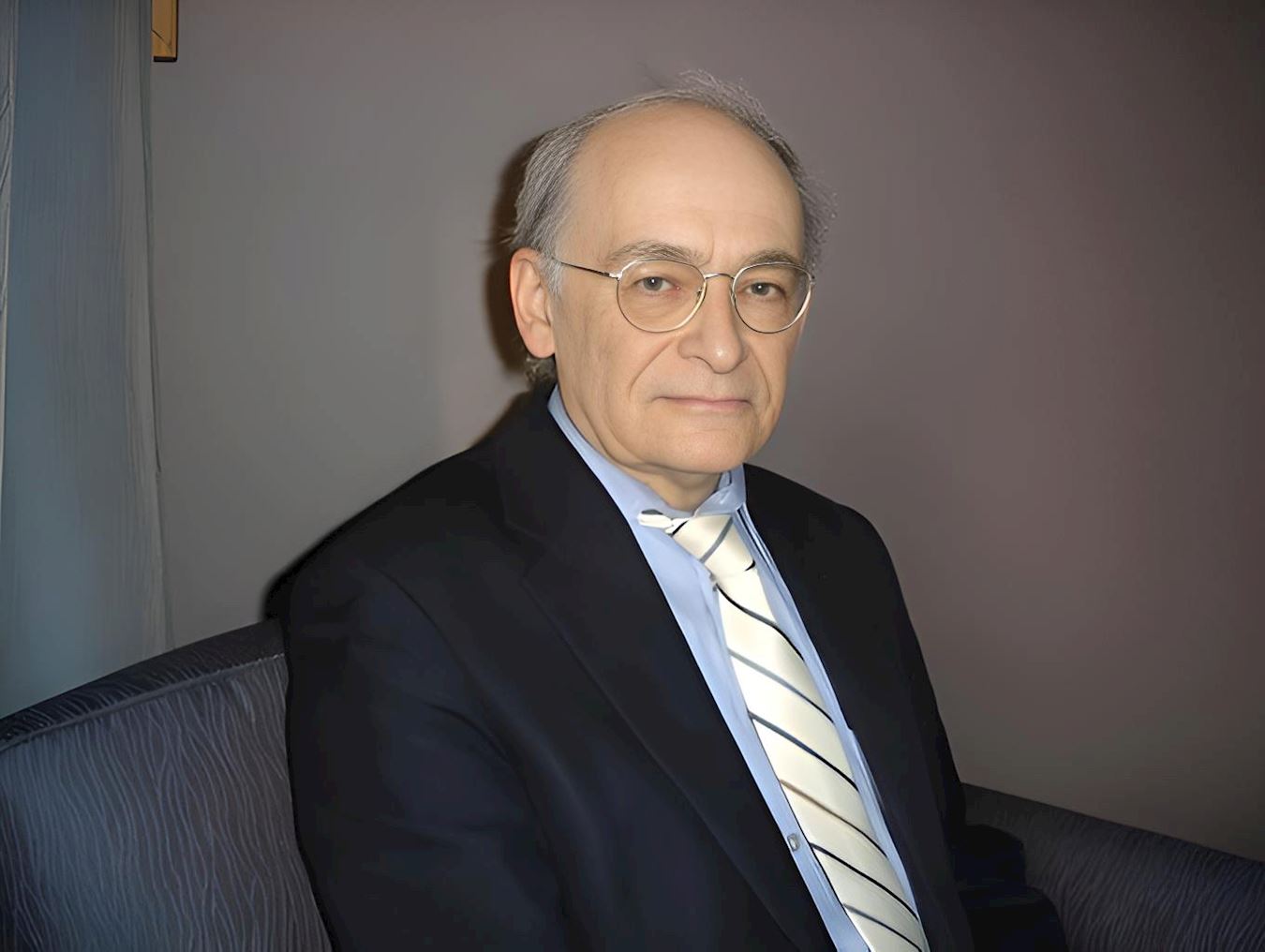 Canadian human rights lawyer David Matas
Canadian human rights lawyer David Matas
Renowned human rights lawyer David Matas also spoke of the importance of addressing the G7 leaders. He explained that China fundamentally suppresses its NGO community and has also engaged in transnational repression against NGOs abroad. G7 leaders carry weight because China cares about its standing on the international stage. Criticism from G7 governments is taken seriously by China. Therefore, if G7 governments take action and speak out, they can exert real pressure on China regarding human rights.
When asked about the mainstream media’s silence, he explained that these atrocities receive little coverage for several reasons: the victims are often deceased, the survivors are few and silent, the events occur in closed-off locations with no visible evidence, and records are inaccessible. Furthermore, journalists cannot enter China without the CCP regime’s permission, which severely limits their freedom to report. Often, journalists or media outlets trade their access for coverage that pleases the Party. Lastly, the extreme and unusual nature of these acts makes them difficult for the general public to believe.
Witness Speaks
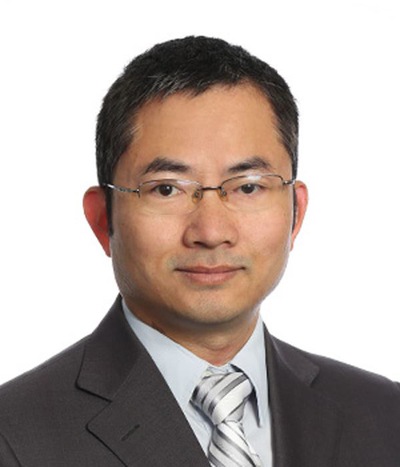 Mr. William Huang, a Falun Gong practitioner
Mr. William Huang, a Falun Gong practitioner
William Huang was a doctoral student at a prestigious university in Beijing when he was imprisoned for five years, from 2000 to 2005, because he practiced Falun Gong. He was tortured, including being shocked with high-voltage batons, sleep deprivation, and mental and physical isolation.
He was forced to work long hours every day (minimum sixteen hours), making all kinds of handicrafts, and also preparing food, like pistachios. He said, “When I arrived in the United States in 2008, I saw that products we made in China were sold in grocery stores, labeled made in China, at very low prices.”
During his imprisonment, he was not aware of the forced organ harvesting. He became aware of it when he was released, and he was appalled.
He said, “I was very shocked to hear about the forced organ harvesting of Falun Gong practitioners. The forced removal of organs is beyond imagination and absolutely contrary to humanity. When I remembered that I had also undergone blood tests during my incarceration, I think I was also a potential target for forced organ harvesting by the CCP.
“I was in good health at the time, but I was given blood tests. Moreover, it is certain that the guard did not care about my health. It is not for health reasons.”
He said that Falun Gong practitioners are continuously harassed, kidnapped, sentenced to prison terms, and subjected to forced organ harvesting, etc.
According to Minghui.org, many Falun Gong practitioners arrested in China undergo blood sampling, either while in detention or when they return home. During the months of March and April 2025, 772 cases of arrests or harassment of Falun Gong practitioners due to their belief were reported.
Professor Cheung: Forced Organ Harvesting Is One of the Most Flagrant Human Rights Violations in China
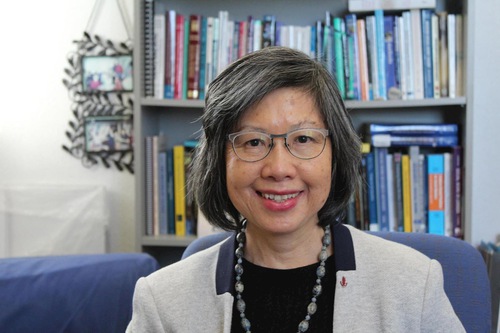 Professor Emerita Maria Cheung of the University of Manitoba, Canada
Professor Emerita Maria Cheung of the University of Manitoba, Canada
Professor Cheung stressed the importance of raising awareness about forced organ harvesting. She believes it is very important to talk about it because, at present, few people are aware of it.
She added, “Forced organ harvesting is one of the most egregious violations of human rights in China. In 2020, the China Tribunal, which is a people’s court, ruled that this genocide continued and that Falun Gong practitioners were the main targets of these human rights violations in China.”
Professor Cheung explained the fundamental difference between organ trafficking, where most often people are consenting by selling an organ (usually a kidney) to earn money, and forced organ harvesting, where people do not give their consent.
She also spoke about the increasingly worrying CCP’s transnational repression and the fact that the G7 leaders must pay great attention to it, as all countries present for this meeting are concerned.
She said, “The transnational repression includes the control of media and also surveillance, intimidation, and harassment of Falun Gong practitioners outside China. So even though practitioners have fled China, they are not safe because they are still subjected to harassment and surveillance, and even bringing harassment to their families in China.”
Trauma Surgeon: Organ Harvesting Is a Horrible Crime
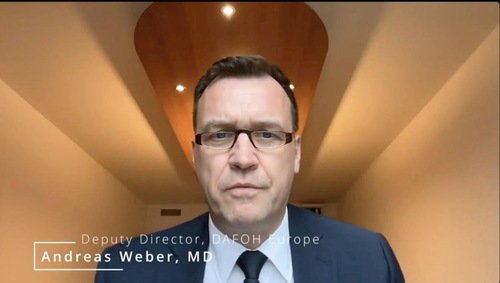 Dr. Andreas Weber, deputy director of DAFOH Europe
Dr. Andreas Weber, deputy director of DAFOH Europe
Dr. Andreas Weber, MD, Deputy Director of DAFOH Europe, highlights the consequences of such a practice for medicine: “Forced organ harvesting goes against or undermines the altruistic systems of organ donation that we have implemented around the world. State-sanctioned forced organ harvesting undermines everything grounded in ethical medical practice.”
He also expressed his concern about the impact of new technologies on maintaining and transporting organs, the medical relations maintained by China with other countries performing transplants, and the ethical issues that this raises.
The demand for organs is so high worldwide that the CCP and its health system benefit from it. Dr. Weber worked as a trauma surgeon in Germany until 2006, and he gave the example of a woman who went to China for a transplant. Because she was an alcoholic, she could not be placed on the waiting list for an organ transplant in her country. She therefore visited China three times, and the wait times were extremely short. She received three liver transplants and paid approximately $400,000 each time.
Dr. Weber said, “Forced organ harvesting is truly a crime; it is a horrible crime,” and “not only from a medical point of view.”
He then presented the first results of the G7+7 petition and made several comments. He said, “After a year, we have already collected 197,250 signatures. And this petition seems to be developing momentum. By talking with the people who collect signatures in the street, we notice that they all share the same experience. When people first hear about forced organ harvesting, they want to act against it.”
The G7+7 petition will continue to gather support and signatures until forced organ harvesting in China or anywhere else has stopped and those responsible are held accountable.
